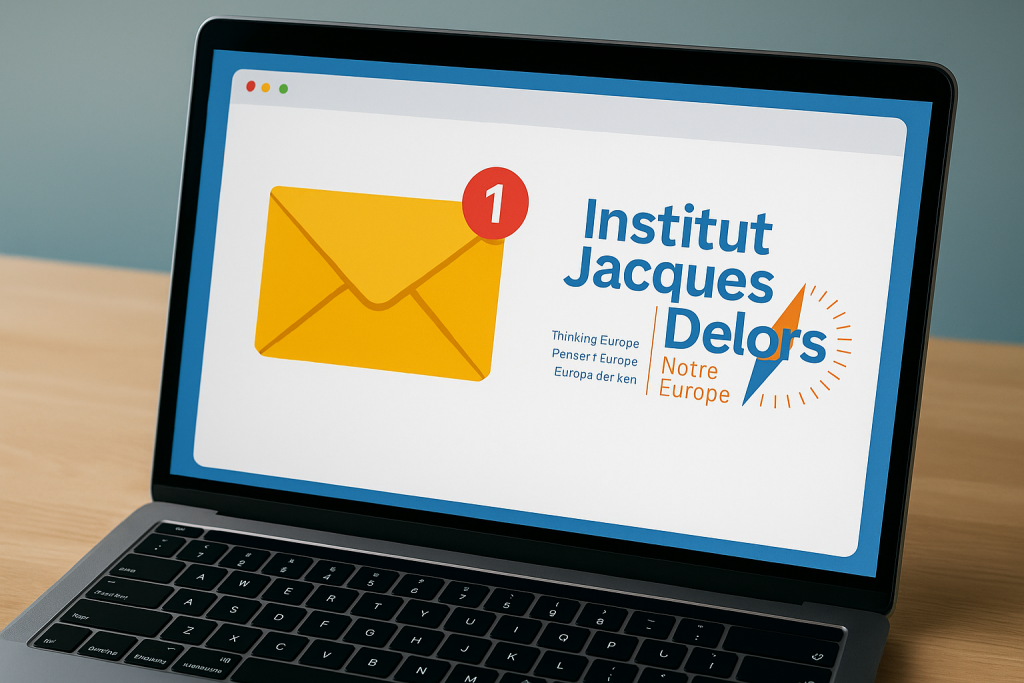
It seems like an eternity since the President of the United States was sworn in, given that the first decisions he has made represent a veritable big bang in every sense of the word: withdrawal from the Paris climate agreement and several international organisations, a trade war and systematic customs duties, suspension of the US international aid programme, thinly veiled imperialist threats against Canada, Greenland and the Panama Canal… In short, it has been a few days in which history has accelerated, confirming that nothing will ever be the same again. The world of the past did not collapse at the time of the Covid pandemic, but it is in the process of fragmenting under the blows of the new tenant of the White House, upsetting all the certainties on which Europe had built its security and prosperity.
This political earthquake has come at a very bad time, with the war in Ukraine continuing, the European economy falling further behind under the impact of the Biden administration’s support measures for the US economy and Chinese overcapacity in a number of key sectors, and political crises multiplying across the old continent. Europe and Europeans are thinking about the right responses, preparing to resist or give way if necessary on certain issues to preserve the essentials. They are thinking about reinforcing European defence just in case… They must also integrate at least two ambitions into their strategic thinking: that of knowing how to seize the opportunities that this situation can create, but also that of assuming our responsibilities in the face of this situation.
Indeed, the polarisation and rupture represented by the decisions of the new tenant of the White House will inevitably have serious consequences for the American and world economies, but also for international relations and globalisation. They endanger a number of countries and populations, threaten to exacerbate climate change and risk isolating this great country, which until now has been at the centre of the game over the last 30 years. China has understood this and is patiently waiting to reap the benefits of this situation. But China is China, and a balance of power is always more desirable than conflict or hegemony. It would be regrettable if, with all the assets at its disposal and the values it defends, Europe did not assume its responsibilities here and take up the baton from a certain American position which, unfortunately, is now unwavering. To do this, we need to remain united and demonstrate a political will. Are we ready to embody a genuine European power, capable of defending its interests, protecting its citizens and asserting its values on the international stage? Our January publications continue our reflections aimed at answering these questions.
In our publication Defence 25: thinking outside the box, Nicole Gnesotto explores possible ways of reinventing European defence policy. Russia’s aggression against Ukraine has revealed structural weaknesses, but also an unprecedented capacity for collective reaction that has endured 3 years after the start of the conflict, even if doubts are beginning to permeate public opinion, as Daniel Debomy points out in Le conflit en Ukraine à un tournant. On this issue, Europe must regain the initiative, explains Pierre Vimont, and assume its role no longer as a mere supporter, but as a central player in its own security. This article, Europe – Ukraine: regaining the initiative, is the first in a series of publications to be written by members of the ‘Geopolitics Group’ with the aim of offering short analyses and recommendations on major geopolitical issues.
But power is not limited to defence. It is based on a coherent economic and industrial strategy, combining the challenges of competitiveness, economic security and decarbonisation. The study The Road to a New European Automotive Strategy: Trade and Industrial Policy Options explores this trilemma in the case of the automotive sector. Led by Victor do Prado, Elvire Fabry, Arancha González Laya, Nicolas Köhler-Suzuki, Pascal Lamy and Sophia Praetorius, it highlights the fact that global competition in key sectors, from industry to the ecological transition, requires an ambitious industrial and commercial policy in Europe, capable of withstanding external shocks while stimulating innovation.
The question of how to finance this ambition is at the heart of our thinking. Strategic sovereignty requires greater budgetary capacity and better integration of European financial instruments. But it must be set alongside the ambitions and the project. This is what Bertrand de Cordoue says about European defence. In his blogpost, For a Europeanisation of the sinews of war, he notes that ‘spending more’ has become a mantra, but that it must go hand in hand with ‘spending better’ and ‘spending together’, as the heads of the institutions keep saying, recalling the ‘cost of non-Europe’ in terms of defence.
The infographic The European Union, the United States and the transatlantic relationship takes stock of the importance of the link between the European Union and the United States and the reciprocal interests of this transatlantic relationship, as they constitute so many assets to be put forward in a balance of power that must be equalized and in the face of pressures as unexpected as Trump and the purchase of Greenland: bluff? Faced with these uncertainties, we need to strengthen our strategic autonomy.
Finally, at a time when political and social crises are challenging Europe’s unity, let us not forget that the bedrock of Europe’s power lies in its social model and its internal cohesion. In Forty Years After Its Creation: What Relaunch for European Social Dialogue?, Jean Lapeyre questions Europe’s ability to maintain an inclusive social model, an essential condition for the legitimacy of its political project.
At a time when, last week, the President of the European Commission and her Executive Vice-President responsible for Prosperity and Industrial Strategy presented the ‘Competitiveness Compass’, a strategic roadmap for the next five years aimed at strengthening the European Union’s economic position vis-à-vis the United States and China, and when the European Union’s Heads of State and Government are meeting this week for an informal summit devoted mainly to European defence, it is vital to bear in mind that a strong Europe is not a slogan, it is a shared political choice. Faced with the challenges of our time, it is now or never..




